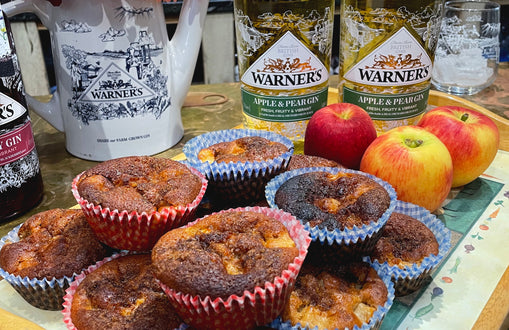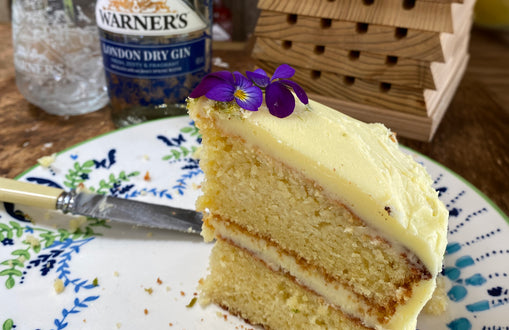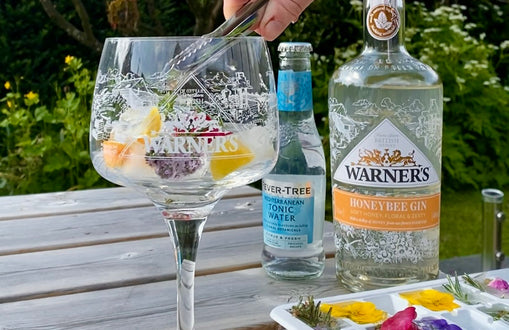National Honeybee Day
National Honeybee Day
15th August 2020
Honeybees are incredible creatures, foraging up to 3 miles a day to find food. Did you know that a strong colony of 60,000 bees can fly the equivalent distance from the Earth to the Moon every single day? That’s like flying from London to Quebec!
Bees work incredibly hard to bring in their honey crop; 12 worker bees will produce just a single teaspoon of honey in their entire lives, meaning we should never underestimate the effort that goes into that jar of honey you pick off the shelf. In just one jar you are looking at an average of 10 million foraging trips, a distance of up to 50,000 miles, equal to flying twice around the globe.
At Warner’s, we value pollinators for their role in producing the botanicals we use to make our epic farm-grown Honeybee gin. It’s the bees who pollinate our hedgerow bounty, including our sloe berries, blackberries, raspberries and, to some degree, our elderflowers. As part of our drive to become as self-sufficient as possible, our farm has become home to acres of botanicals which provide a fantastic resource to all our local pollinators for both pollen and nectar. Without the bees we would have no angelica seed which we gather for growing angelica root, used in every gin we produce.
Jonny, our Conservation and Sustainability Manager (and epic bee keeper) looks after our 20 hives, home to approximately 1.2 million bees, and 5% of every single bottle of our Honeybee gin, created in partnership with (RHS tag) is filled with honey from our farm’s own hives and local beekeepers. Each bottle of our Honeybee gin comes with wildflower seeds for you to plant at home and a portion of the proceeds from every bottle is donated to the Royal Horticultural Society. Did you know that you can personalize our 70cl bottle labels for free when you order from our website, making it the perfect gift for any bee-loving friends or family members?
Throughout partnership with the Royal Horticultural Society, we’ve been able to support many fantastic pollinator habitat initiatives and projects, sponsor bee keepers and provide educational support, and we’re incredibly proud to have won the (Stakeholder Engagement Award) at the 2019 Footprint Drinks Sustainability Awards for our work.
With pollinator populations experiencing prolonged declines, there are some simple ways that you can help to support pollinators at home. Here are a few of our top tips:
- Provide feeding spaces – Create a bee buffet in your garden! Plant the wildflower seeds that come with our Honeybee gin or check out the RHS website for some fantastic ideas on the best plants for pollinators.
- Foster some bees - Why not take up beekeeping as a hobby? Join your local bee keeping association for the chance to have a go at beekeeping, sign up to a beginner’s course to learn the basics about what it takes to safeguard your very own little colony. Alternatively, pop a bee hotel up in your garden ready to welcome solitary bee guests in next spring.
- Go Wild – Don’t mow, and let areas of your garden go wild. You’ll be surprised to see the flowers that appear and the bees will love you for it. Don’t curse the dandelions in these wild sections either and embrace your inner wildness.
- Ease up of the pesticides – Chemicals in pesticides have been developed specifically to get rid of unwanted beasties but sadly they don’t choose between those with or without wings! Minimising the chance of bees coming into contact with it can be easy – never spray open flowers with pesticide. Consider if you have an alternative to using pesticides? Find out more at https://www.pan-uk.org/alternatives-to-pesticides/




